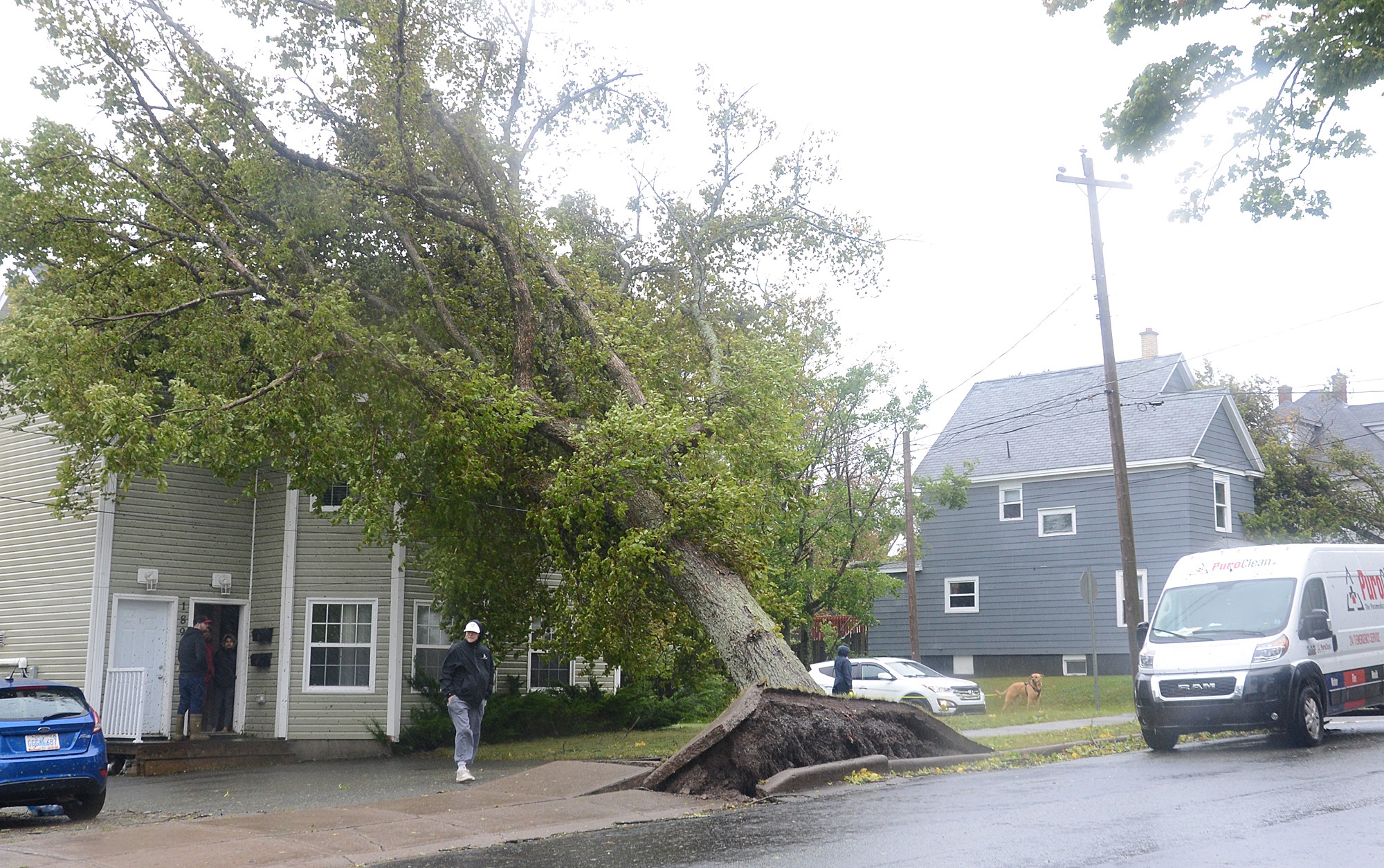Hurricane Fiona, the most powerful tropical storm recorded in Canada, swept through Atlantic Canada on the weekend of Sept. 24. The destruction ranged from downed trees and lost power to houses to roads swept entirely away.
More than 500,000 in the Maritimes were left without power as crews worked to restore downed power lines. Two hundred people in Cape Breton were evacuated from their homes. Residents of Prince Edward Island, where winds reached 150 km/h and over 100 millimetres of rain fell, were told to shelter in place.
You may unsubscribe from any of our newsletters at any time.
Prince Edward Island Premier Dennis King said the damage may have been “the worst we’ve ever seen,” and that the road to recovery will be weeks, or longer.
But the Maritime spirit of communities helping their own has been on display before and after the disaster. Before the storm hit, Rev. Kyle Wagner of Christ Church in Halifax was thinking about how to be of use, telling CTV News Atlantic that the church was inundated with calls from people wanting to make sure the hall would be open for a place to shelter. Church staff and volunteers spent the final few hours before the storm scrambling to make sure they would be reaching out to everyone who needed assistance. “It is people who are on the street right now that we are worried about,” said Wagner.
While the province’s Eastern Shore felt the greatest damage, much of Halifax was left without power and streets were full of downed trees. Small businesses came out to support their community: A pizza place used their generators to power coffee machines, offering free cups to anyone who came by. A barbershop provided free hair washes to people without power. Restaurants freed up fridge space so that other restaurants could hold onto their most expensive and perishable goods. The Halifax chapter of Out of the Cold reported that thanks to donations of money and supplies (donated tents, sleeping bags, tarps, and lights), they were able to help 22 houseless people re-set up their shelters.
The Amelia Saputo Centre for Healthy Living at St. Francis Xavier University in Antigonish, on the province’s north coast, invited all residents without access to a hot shower to come use the facilities. The local library welcomed people to use their internet, charge devices, and get access to refreshments.
Local churches found that many COVID protocols were useful when congregants couldn’t leave their homes or churches were unpowered or damaged. “Over COVID, we had been sending out an email form of worship (prayers, readings, sermons, YouTube hymn links) so everyone received this…as long as they had power,” said Rev. Kimberlynn McNabb of the Evangelical Lutheran Church of the Resurrection in Halifax.
Help has also come from further afield. International relief organization Samaritan’s Purse partnered with Summerside Community Church in P.E.I. to dispatch a disaster relief unit of tractors equipped with chainsaws and cleanup equipment. The crew has been cleaning debris and tarping over damaged roofs. They will also prepare flooded homes for rebuilding.
More on Broadview:
- Why I donated my kidney to a stranger
- ‘This House is Not a Home’ tells a moving story of Indigenous dispossession
- Bill Blaikie’s death marks the passing of a great social gospel politician
The Mennonite Disaster Service (MDS) is on the ground making connections with local groups to partner with for longer-term disaster assistance. Their speciality is rebuilding homes six months to a year after the fact. “We’re not the first to arrive, but we’re the last to leave,” said communications manager John Longhurst.
Their director of Canadian operations met with local representatives of the United Church this week to discuss potential partnerships. There are very few Mennonite congregations in Atlantic Canada, but lots of United Church ones, Longhurst said, so partnering locally is crucial to the MDS response structure. Work begins once people have determined whether they will receive insurance, or government assistance, and then the MDS finds those who fall through the cracks: the uninsured or not well-insured, the elderly, the disabled. “We always depend on local people to identify those people,” said Longhurst. “A local church could help us find a family that could really use our help.”
Thousands of kilometres away in Alberta, Blowers & Grafton, an East Coast-inspired bar with Maritime roots, is also hosting a fundraiser on Sept. 30, sending all net proceeds on alcohol to the Canadian Red Cross, and encouraging patrons to send in direct donations. The federal government announced a donation matching program with the Canadian Red Cross, making each donation that much more impactful.
“Even within our team members, they’ve got family members whose roofs have blown off in Cape Breton and gas stations that have been completely taken out,” Halifax-raised co-owner Josh Robinson told the Calgary Herald. “It’s rough when things like this happen, especially being so far away. It definitely hits home; it hits your heart.”
***
Kate Spencer is a writer in Halifax.














